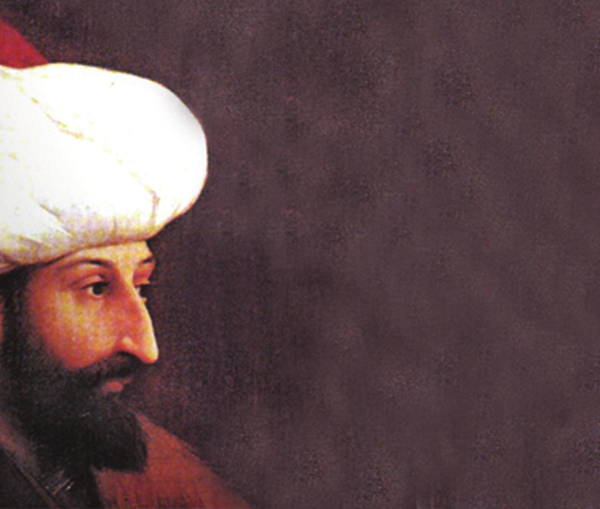Fatih the Conquerer
One of the most important sovereigns of the Ottoman Empire was Fatih Sultan Mehmet, widely known in history as Fatih the Conquerer. During his reign (1451-1481) the Ottoman Empire extended its sovereignty towards Southeastern Europe. Undoubtedly, within that improvement process, the conquest of Constantinople/Istanbul in 1453, which is not only the end of the Byzantine Empire but also the starting point of the imperial politics of the Ottomans, was, by far, the most famous success of Fatih Sultan Mehmet. Because of that, today he is accepted as the first great emperor of the Ottomans who turned the Ottoman state into the form of an empire. Besides this, he is the first one of the great sovereigns of the Empire, whose successors are Yavuz Sultan Selim and Suleiman the Magnificient.
Besides his military success, Fatih Sultan Mehmet was one of the most interesting characters among the emperors of the Ottomans. As a man of Renaissance, he could speak several foreign languages, such as Latin, Italian, Arabic and Persian and he was good at poetry, too. He wrote many poems by using Avni as a nickname. He was so good at Italian that he read Dante’s Divine Comedy in its original manuscript. He was also interested in painting. During his reign, several Italian painters moved to Istanbul, the capital of the Ottoman Empire. One of them, Gentile Bellini, drew Fatih’s famous portrait which today can be seen in Topkapı Palace in Istanbul. Fatih was also deeply interested in geography in means of military affairs and due to personal curiosity. He had examined Ptolemaios’s first map of the World of 15th century. Like the portrait of Bellini, the map of Ptolemaios and the personal library of Fatih Sultan Mehmet are all protected in Topkapı Palace today.
According to Fatih Sultan Mehmet, the most important aim was to conquer Rome, which was at that time the capital of the Catholics of Europe. Rome, as the centre of the Catholic Church, was the symbol of the clash between Christianity and Islam in the mind of Fatih. In order to take all Europe under the control of the Ottomans, Fatih believed that Rome and all the Catholics must be taken. Within that context, through the end of his reign, he planned a new military campaign to conquer Rome. In the year 1481, the Ottoman army under the leadership of Fatih, departed for Rome from İstanbul. A few days later, because of his old age and chronic diseases, like gout, he got ill. At the end of three days, Fatih Sultan Mehmet passed away. After a serious clash between his sons, Bayezid and Cem in order to get the throne, Bayezid won the war against his brother and became the new emperor of the Ottomans.

